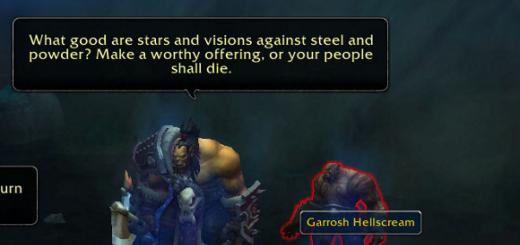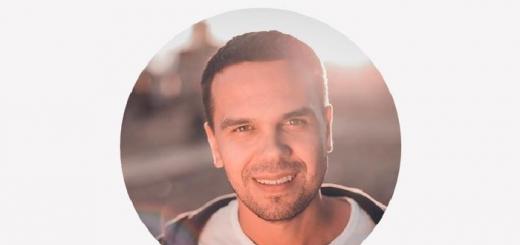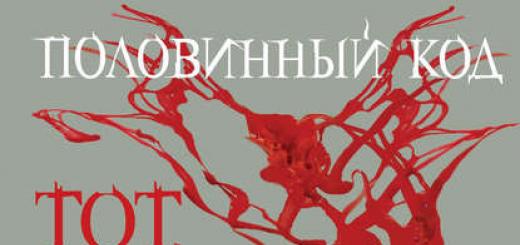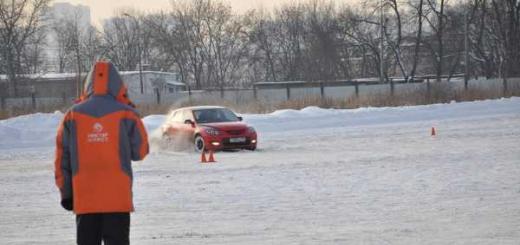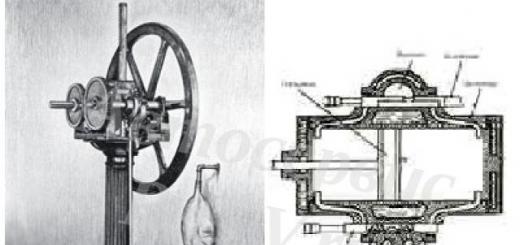Someone brought a casket from the master.
Finishing, cleanliness Casket rushed into the eyes;
Well, everyone admired the beautiful Casket.
Here comes the sage into the mechanics room.
Glancing at the Casket, he said: "A casket with a secret,
So; he is without a lock;
And I undertake to open; yes, yes, I'm sure of it;
Don't laugh so hard!
I will find a secret and I will open the Casket for you:
In mechanics, I'm worth something."
Here he took up the Casket:
Spins it around
And he breaks his head;
Now a carnation, then another, then a bracket shakes.
Here, looking at him, another
Shakes his head;
They whisper, and they laugh among themselves.
In the ears only reverberates:
"Not here, not like this, not there!" The mechanic is more torn.
Sweat, sweat; but finally tired
Behind the casket
And I didn't know how to open it.
And the casket just opened.
Casket - Moral of Ivan Krylov's fable
It often happens to us
And work and wisdom to see there,
Where you can only guess
Just get down to business.
Morality in your own words, the main idea and meaning of the fable Casket
Sometimes there is a simple and correct solution to a complex question.
Analysis of the fable Casket, the main characters of the fable
Analyzing one of the most original fables of Ivan Krylov “The Casket”, we see a self-confident and, probably, experienced, but not at all quick-witted mechanic who tried in every possible way to open the casket, but it turned out to be beyond his power. The spectators who gathered to watch this action tried their best to help with their tips, but this did not lead to success.
The whole clue is hidden in the last lines of the work “And the chest just opened”, but as far as one author knows. In life before the will, it often happens that people look for a way out of a simple situation in complex ways, which greatly complicates everything. So the main character just had to open the casket, and not invent cunningly wise options.
author this work with his lines he wanted to convey to mankind that it is not necessary to turn his fables inside out, choosing the key to each line and word, but it is worth looking at the surface. There is also a hint that one should not abandon the work begun, halfway faced with the slightest difficulties.
If we disassemble the work from the reverse side, then we see that the author did not give a specific answer how exactly the casket was opened. Here it is not entirely clear that the problem is the absence or presence of a lock, or the stupidity of the master. Another moral emerges from this: there is no single right way out of any problem and the solution is to analyze the situation and look for a special, individual approach.
Ivan Andreevich in his fables, including the "Casket", surprisingly tries to open people's eyes to simple, ridiculous situations and stupid actions. If main character(mechanic) was a little smarter and did not exaggerate his capabilities, did not consider himself a great sage, but looked at the task assigned to him, then he would have easily opened a beautiful casket.
Popular expressions that went from the fable Casket
- And the casket just opened.
Listen to Ivan Krylov's Fable Casket
It often happens to us
And work and wisdom to see there,
Where you can only guess
Just get down to business.
Someone brought a casket from the master.
Finishing, cleanliness Casket rushed into the eyes;
Well, everyone admired the beautiful Casket.
Here comes the sage into the mechanics room.
Glancing at the Casket, he said: "A casket with a secret,
So; he is without a lock;
And I undertake to open; yes, yes, I'm sure of it;
Don't laugh so hard!
I will find a secret and I will open the Casket for you:
In mechanics, I'm worth something."
Here he took up the Casket:
Spins it around
And he breaks his head;
Now a carnation, then another, then a bracket shakes.
Here, looking at him, another
Shakes his head;
They whisper, and they laugh among themselves.
In the ears only reverberates:
"Not here, not like this, not there!" The mechanic is more torn.
Sweat, sweat; but finally tired
Behind the casket
And I didn't know how to open it.
And the casket just opened.
Moral of the fable "Cabin"
This fable is perhaps one of the most difficult in the work of the famous Krylov, and combines both simplicity and secret at the same time. Read carefully the contents of the lines.
The simplest conclusion about its essence, like the “casket” itself, seems to be simple - before choosing a difficult path and inventing something, you should first try those methods that seem too obvious and simple - maybe it will be the solution to the problem.
But there is a second subtext of this story - after all, the chest was never opened. The question remains - was it really just without locks, or did the master lack the skill to solve it?
About how the mechanic tried to find complexity where it does not exist, the fable "Casket" by Krylov will tell young listeners.
Read the text of the fable:
It often happens to us
And work and wisdom to see there,
Where you can only guess
Just get down to business.
Someone brought a casket from the master.
Finishing, cleanliness Casket rushed into the eyes;
Well, everyone admired the beautiful Casket.
Here comes the sage into the mechanics room.
Glancing at the Casket, he said: "A casket with a secret,
So; he is without a lock;
And I undertake to open; yes, yes, I'm sure of it;
Don't laugh so hard!
I will find a secret and I will open the Casket for you:
In mechanics, I'm worth something."
Here he took up the Casket:
Spins it around
And he breaks his head;
Now a carnation, then another, then a bracket shakes.
Here, looking at him, another
Shakes his head;
They whisper, and they laugh among themselves.
In the ears only reverberates:
"Not here, not like this, not there!" The mechanic is more torn.
Sweat, sweat; but finally tired
Behind the casket
And I didn't know how to open it.
And the casket just opened.
Moral of the fable Casket:
The moral of the fable is that you should not look for complexities and hidden meanings where they do not exist and cannot exist. Often, like this master, people try to think of their own facts for any situation. But in this way they only complicate what is actually simple and understandable. Of course, the main character of the fable - a mechanic - was an experienced craftsman. However, he did not have the ingenuity to understand: there is nothing complicated in this casket. The fabulist teaches what to look for secret meaning in such cases, it simply means making life difficult for yourself and others.
were borrowed from literary works. Some of them came to us from famous fables Ivan Andreevich Krylov. For example, the idiom "and the casket just opened."
In this article, we will consider this quote from Krylov's fable, determine its meaning and morality.
The meaning of the phraseological unit "and the casket just opened"
To define the expression, we turn to various dictionaries. The sensible I. S. Ozhegova gives the following interpretation of this stable phrase: “About what seemed complicated, but in fact it was completely simple.” The linguist noted that the expression is used in a colloquial style.
Let's consider what definition the dictionary of I. A. Bunin, edited by A. I. Vasiliev, gives to the stable phrase "and the chest just opened." The meaning of the phraseologism in it is as follows. “It is used when they talk about some business, an issue in the resolution of which there was nothing to be wiser.”
Phraseological dictionary of Rose T.V. contains the following interpretation: "A simple way out of a seemingly difficult situation."
As we can see, all definitions are expressed in different words, but have a common meaning.
Origin story
As already noted, it came to us from the fable of 1808 "Casket" by I. A. Krylov. It begins with the main thought of the author. What follows is a story about how a mechanic tries to unravel the secret of a chest without a lock: how it opens.

He turns it this way and that, breaks his head, presses on different places. But the casket does not give in, and the audience laughs. The mechanic tried, sweated, tired and gave up. And the casket opened simply, it was not locked.
Moral of the phrase
There is such a thing as "break into open door". It perfectly conveys the meaning of phraseologism "and the casket just opened." The author of the quotation from the fable we are considering conveys to readers the idea that often seemingly complex situations have a completely simple way out.
The phrase from this work instantly became winged. She is popular with writers and journalists. The former often use it in dialogues, while the latter often use it in headings. They use this expression to show that everything is actually simpler and clearer than it seems.
The meaning of the passage from the fable is relevant to all of us. After all, we often think that something that sometimes actually has a simple solution seems complicated. In such cases, it is worth remembering Krylov's fable "Casket". She perfectly shows us how people complicate what has an easy way out.
“Russia’s efforts made it possible to slow down
global warming of the planet"
(Putin)
"Oh, frost, frost..."
(Russian folk song)
Man, created for the great. He was given unique abilities and talents already by the fact of his birth. Surprising adaptability to environmental conditions, getting used to the place where one lives and the society of one's own kind, accepting the rules of the game of this society and putting oneself within the framework of these rules, however, does not make the individual unfree. Even a slave, oppressed and disenfranchised, is able to dream and philosophize. Of course, his thoughts will be primarily about survival and dreams of freedom, but then the patrician lives within the limits of acceptable rules, the violation of which is punished no less severely than the violation of the rules of a slave.
Born free, man has enslaved himself by delegating authority to those chosen from his environment. Initially, being in harmony with nature, although in complete dependence on it, since he himself was and is a part of it, man acted irrationally. He hurried to provide himself with comfort, and at the expense of other fellow tribesmen and created a hierarchy. The growth of the world's population required the creation of conglomerations with different leaders representing their own development paths. Thus, peoples and their individuality appeared. However, the ways of development of different communities did not differ in diversity - all the same providing the comfort of worldly existence.
This comfort can be obtained in several ways. For example, military conquests and the subjugation of neighboring tribes. This is how warriors were born. The second option was trading, which is the most common speculation based on scarcity. What you see now existed before and tricks (from body kit to creating demand) have always existed. Trade turned out to be a profitable business, but here's the problem - the tribes of warriors did not agree with this arrangement of affairs and quickly realized that their comfort could well come at the expense of merchants. Milking the huckster has become a matter of honor.
The third type of income was bank interest or loans, which became widespread in Europe in the early Middle Ages. Everyone needed banks: warriors and merchants.
The fourth way of enrichment turned out to be the most difficult - it is work. I lived by labor largest number people who create wealth. It was they who were overlaid with tribute: first, with a tithe and a tax on the human resource - a recruit for the needs of the soldiers.
The fifth option was the opportunity to make money on religion. This is the most productive income, taxing everyone and everything, that is, the four previous estates. This was especially evident in the Middle Ages. now religion component bank interest and the Vatican Bank are evidence of this. I would like to clarify one detail, we are talking about religion, and not about FAITH. Faith is quite different than the variants of its interpretation.
And finally, the sixth way to make money in human society. This is the most unscrupulous, because it exploits all the previous ones. It's about about politics.
This is the method we will consider in relation to the accession of the long-suffering Crimea to the Russian Federation.
I heard rumors about the Kremlin's telephone conversations with Kiev just before the annexation of Crimea. I've always been skeptical about this, if it weren't for the document I posted in the thumbnail intro.
SUPREME COUNCIL OF THE RUSSIAN FEDERATION
ON THE LEGAL ASSESSMENT OF THE DECISIONS OF THE SUPREME BODIES OF STATE AUTHORITY OF THE RSFSR ON CHANGING THE STATUS OF CRIMEA, ADOPTED IN 1954
The Supreme Council Russian Federation decides:
1. Decree of the Presidium of the Supreme Soviet of the RSFSR dated February 5, 1954 "On the transfer of the Crimean region from the RSFSR to the Ukrainian SSR", as adopted in violation of the Constitution (Basic Law) of the RSFSR and the legislative procedure, shall be recognized as having no legal force from the moment of adoption.
2. In view of the constitution of this fact by the subsequent legislation of the RSFSR and the conclusion between Ukraine and Russia of a bilateral agreement of November 19, 1990, in which the parties renounce territorial claims, and the consolidation of this principle in treaties and agreements between the CIS states, it is necessary to consider it necessary to resolve the issue of Crimea through interstate negotiations between Russia and Ukraine with the participation of Crimea and on the basis of the will of its population.
Chairman of the Supreme Council of the Russian Federation
R. I. Khasbulatov
Moscow, House of Soviets of Russia
May 21, 1992
№2809-I
Apparently, it was this document that VVP had in mind when he said that Ukraine did not secede quite correctly.
With many positive steps taken by the Kremlin, some actions are puzzling. Of course, much is not given to us to know, but after all, everything secret becomes clear sooner or later. Is it worth keeping your people in the dark if there are documents that are able to explain the legality of the return of the Crimea, and not just one, but several? The published Decree should be of interest to historians, not only future, but also present. It seems to me that the presence similar document The Kremlin couldn't help but know, otherwise, why would there be such a huge staff of lawyers there?
As I see it from what I read, the decision to return Crimea was made by both sides, and the said document only confirms the legitimacy of what happened in 2014. It turns out that there was nothing heroic in the return of the peninsula, except for the deceived people who took everything at face value. It seems that this document sheds light on the trampling of Russia in the Donbass.
In this light, the statement of another European official is extremely remarkable.
The International Criminal Court in The Hague cannot open a criminal case on the fact of the annexation of Crimea to the Russian Federation. This was stated by the official representative of the ICC Fadi El-Abdallah.
According to him, the function of considering cases related to "acts of aggression" may appear at the International Criminal Court only at the end of 2017, if the relevant rules are ratified by at least 30 states.
“This rule is written in the Rome Statute, but will come into force in 2017. In November 2017, there should be a vote on whether we want to activate this part of the litigation or not. Depending on the results of the vote, we will know whether this crime falls under the jurisdiction of the court,” Abdallah said.
However, according to him, Ukraine will not be able to apply to the ICC even after the completion of the procedure. “I don't think it applies to the facts that were in the past. Events occurring before the act of aggression amendment enters into force will not be adjudicated by the court.”
It seems that this whole world show around Crimea has completely different goals and they should be sought in the Middle East.
